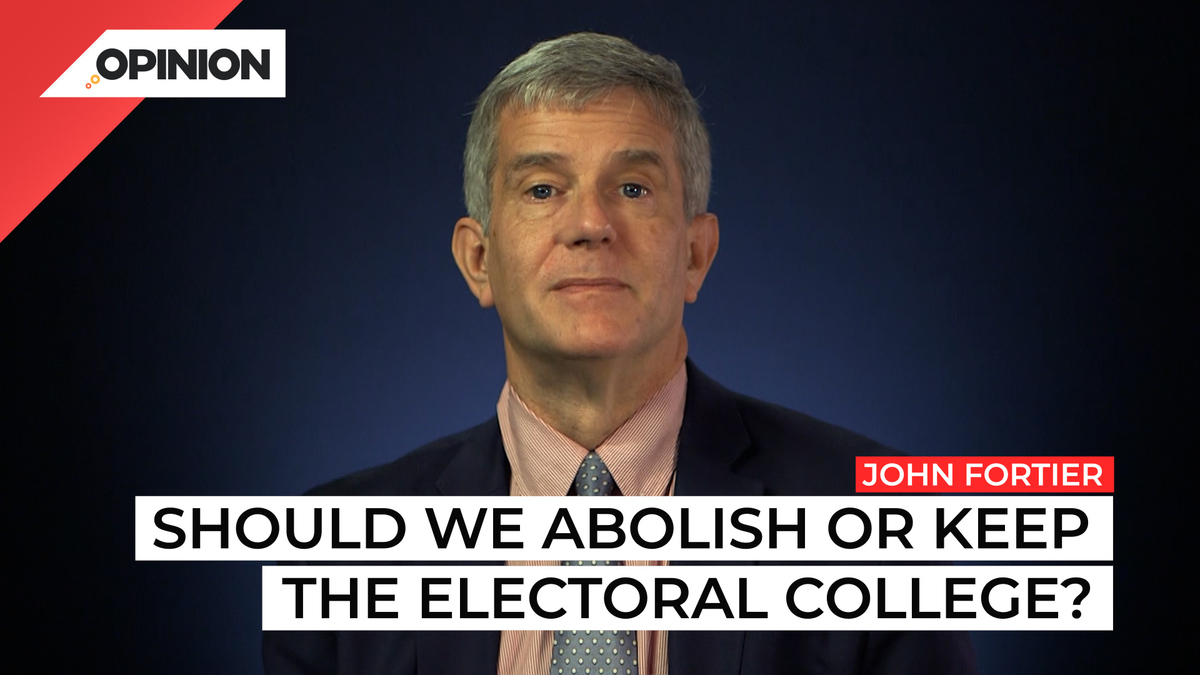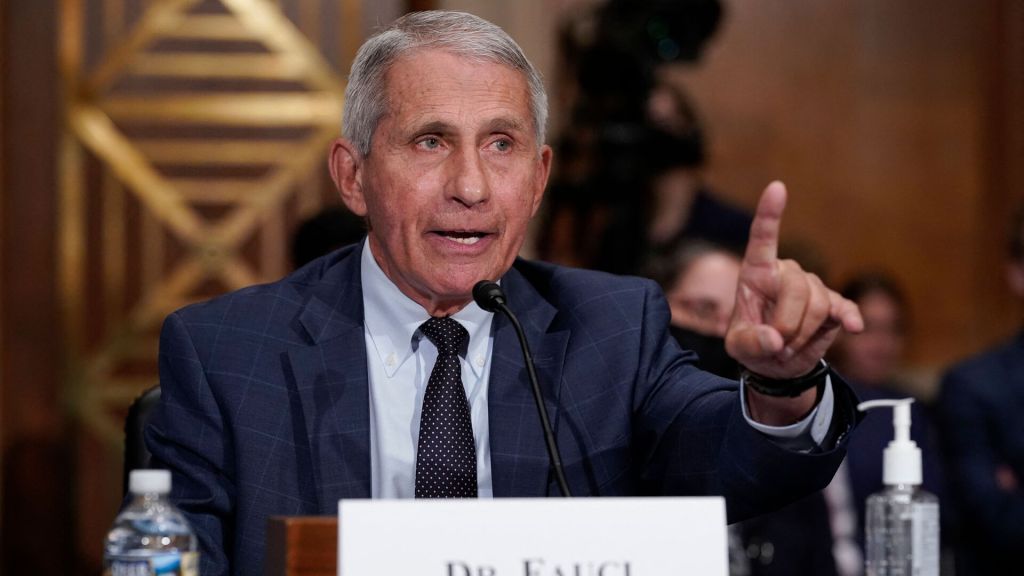
Commentary
-
Our commentary partners will help you reach your own conclusions on complex topics.
Should we abolish or keep the electoral college? I will make some arguments for keeping it. But if you answered “abolish” to the question, you’re in the majority. I’ve edited a book with AEI Press on the electoral college, “After the People Vote.” My colleague Carlin Bowman, contributed a chapter on the history of public opinion on the electoral college. Her findings? While there have been ups and downs in the popularity of the electoral college, it has always had minority support.
Typically close to 60% of Americans favor getting rid of the electoral college and moving to the direct national popular vote. Opponents make two strong arguments for getting rid of the electoral college. First, the electoral college is unfair, and that the winner of the national popular vote might not win the electoral college vote. In addition, some argue that our political configuration gives Republicans an advantage in the electoral college and they see that advantage growing over time. Second, the challenge to electoral votes last January 6 is another reason to get rid of the electoral college.
With those reasons to oppose the electoral college, why should we keep it? First, the alternatives would have problems, too. A close popular vote would still lead to political clashes over the result. And some institution will have to have the final say on the results of the election. And that institution might also prove controversial in a contested election.
Second, the most worrisome charge against the electoral college is that the likelihood of the electoral college going in the other direction of the popular vote is getting more common with our current political configuration, and that it favors Republicans. If the electoral college regularly elected the loser of the popular vote, it would ultimately be unsustainable. But our history has shown that political trends change, and that the likelihood of one party always winning with a minority of the popular vote is unlikely.
In 2000, most speculation before the election was that Al Gore might win the electoral college, but lose the popular vote. And before 2000, it had been over 100 years since the electoral college and popular vote winners diverged. Third, one key reason for keeping the electoral college is that it is consistent with federalism. States are important parts of the American electoral system. States have different modes of voting. The electoral college encourages candidates to win the popular vote in states, which is consistent with the importance of states and the decentralized election system.
Imagine we did away with the electoral college? We would have to do away with the ability of states to have the types of voting that best fit their state’s political culture. Today, some states have all voting by mail. Others have photo ID requirements, voting machines, hours and days of voting regulations on registration… all differ from state to state. With a national popular vote, states would no longer have the ability to set their own voting rules.
Also, we have safety in a decentralized voting system. We have elections run in 50 states and the District of Columbia. Some of those states are controlled by Republicans, some by Democrats. If we had one party in charge of a national election, the losing side would likely complain that all election decisions went against them. Similarly, foreign actors seeking to disrupt our election could focus on one national system. Today, those who might seek to undermine our system have to find ways to undermine elections in multiple states.
Finally, there’s good news on some of the issues around January 6. In an earlier video, I discussed possible changes to the Electoral Count Act to improve the counting of the electoral votes on January 6. Those changes were passed into law at the end of last year. While it will not fix all problems in two areas, it will make a difference.
The new law makes it harder for just a few people to object to the counting of electors, and it clarifies that the Vice President does not have the power to intervene in Congress’s counting of the votes. One argument for these changes in the Electoral Count Act was made forcefully by Senator Rand Paul of Kentucky. Without fixing some of the problems of the counting of the votes on January 6, it is more likely that the opponents of the electoral college would abolish it altogether. The electoral college is still not popular, but it is on stronger footing because of a willingness to improve its workings.
-
SCOTUS case on threat of disinformation raises thorny questions
The Supreme Court recently heard arguments concerning government communications with social media platforms in Murthy v. Missouri. Plantiffs in the case claim that government agencies pressured social media companies to remove or restrict posts spreading disinformation about vaccines, elections and COVID-19. Straight Arrow News contributor John Fortier delves into the complex questions raised by the…
-
Trump v. Anderson is more complicated than it looks
The Supreme Court case Trump v. Anderson will decide whether former President Donald Trump is eligible to run as a candidate for president in 2024. Some constitutional law experts have argued that Trump cannot run as a candidate, citing what they say is a clear violation of the 14th Amendment in the U.S. Constitution, which…
-
Era of Iowa, New Hampshire kicking off election season is ending
In American politics, tradition dictates that Iowa and New Hampshire kick off the election season as the two major parties elect their primary candidates. Recently, however, Democrats have suggested revising this tradition, arguing that Iowa and New Hampshire do not present an optimal, comprehensive sample of American voters, and suggesting states like South Carolina or…
-
Why the frenzy over Georgia’s voting laws was misplaced
Georgia Gov. Brian Kemp (R) changed state voting laws after President Joe Biden narrowly won Georgia’s electoral votes over former President Donald Trump in 2020. Voting advocacy groups responded and the U.S. Department of Justice filed a lawsuit against the legislation. These lawsuits alleged that the Georgia GOP in the state legislature aimed to restrict…
-
Changing speakers isn’t actually going to help Republicans
After three weeks without a speaker and three unsuccessful attempts to secure the required votes for a new one, the U.S. House of Representatives elected a little-known Congressman from Louisiana, Rep. Mike Johnson. But was the decision to elect Rep. Johnson, who leans hard-right and pro-Trump, a wise move for the Republican Party? Straight Arrow…
Latest Opinions
-
 Getty Images
Getty Images
Conservative media liken Biden protest comment to Trump’s ‘fine people’ dustup
-
 Getty Images
Getty Images
Survey: More US workers now fear losing jobs, lower wages due to AI
-
 Al-Qassam Brigades
Al-Qassam Brigades
Hamas video shows American hostage, arm amputated from Oct. 7 attack
-
 Getty Images
Getty Images
Arizona House votes to repeal Civil War-era abortion ban
-
 Getty Images
Getty Images
Arizona grand jury indicts 18 in alleged 2020 fake elector scheme tied to Trump
Popular Opinions
-
In addition to the facts, we believe it’s vital to hear perspectives from all sides of the political spectrum.


